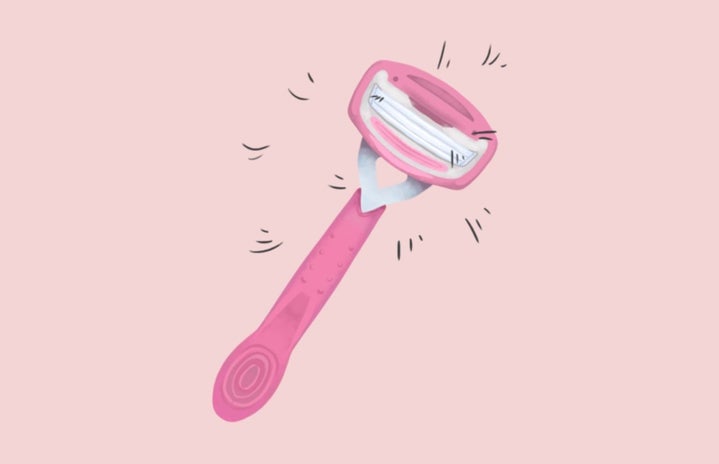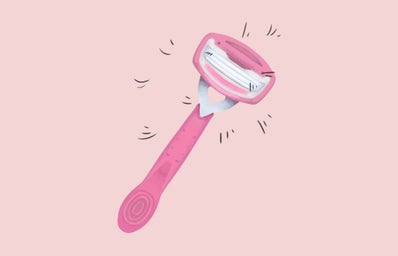You may have seen this brand storming social media recently with sponsored posts from well-loved influencers. Estrid, a vegan razor brand offers a no strings attached subscription-based service, I want to explore how they have become so popular in such a crowded market.

We’ve all seen razor adverts on the television of women with no hair in sight to shave. I’ve always thought how ridiculously sterile the presentation of female body hair is in the media, why make something we all know occurs such a taboo sight? Estrid, however, has flipped that common perception of body hair on its head with their advertising. Opening their website, you are greeted with a stunning model with an equally stunning bush of armpit hair. Their key value is that shaving is a personal choice, by allowing their customers to choose how frequently they receive their order of razors they acknowledge that with each woman comes a different shaving preference. Having come to terms with the fact I will never be a woman who shaves every day (I admire your patience), I find it so refreshing that there is now a space where body hair and equally the art of shaving your body hair is celebrated.
Moreover, to feel acknowledged and respected in how and when I choose to shave feels like a privilege, especially when women’s products have become such a monopoly. Clearly by encouraging shaving and presenting clean-shaven body images in advertisement companies are able to generate large profits by making body hair seem disgusting. The idea that the aesthetic expectations of women have been manipulated in order to promote new products is disgusting. This feeling is common when trends are born and die, for example how an hourglass waist has become the peak of desirability and alongside that feature comes a wave of corset companies. It is overwhelmingly obvious that ties exist between capitalism and trends, this is shown when researching the roots of women’s body hair in the media.
In preparation for this article I decided to conduct some research into the perception of female body hair and how it split from being acceptable like men’s hair is in the media. It seems from the early 1900s women have been pressured into hair removal, the fashion industry changed with clothing becoming shorter and therefore threatening to reveal the hair that lay underneath. Gillette created the ‘Milady Décolleté’ a razor which was manufactured alongside an anti-underarm hair campaign. Although advertisements these days are not as explicit with their distaste for body hair, the complete dismissal of it is very telling. It seems we may be on the brink of a body hair revolution with brands like Estrid leading the way.

The company also prides itself on its fair pricing, with an open discussion around ‘pink tax’. Pink tax is a name for the gender-based price discrimination that women experience throughout their lives, from buying toys to adult diapers, women will pay more for products made for the female market. On average women will pay 13% more for personal care products. Estrid however markets their products at a fair price, offering women an affordable alternative. For less than ten pounds, someone can receive a razor handle and four razor heads on a subscription basis. This not only opens the product up to those who cannot afford to pay the inflated price for female products but also those who lead busy lives and don’t have time to go out shopping.
The way Estrid cares so much about their customers is extremely refreshing especially when it feels like as consumers, we are little more than cash cows. In the future I will only be buying from Estrid, I value their dedication towards a cruelty-free, quality product with an inclusive message which radiates from their marketing and online presence.


